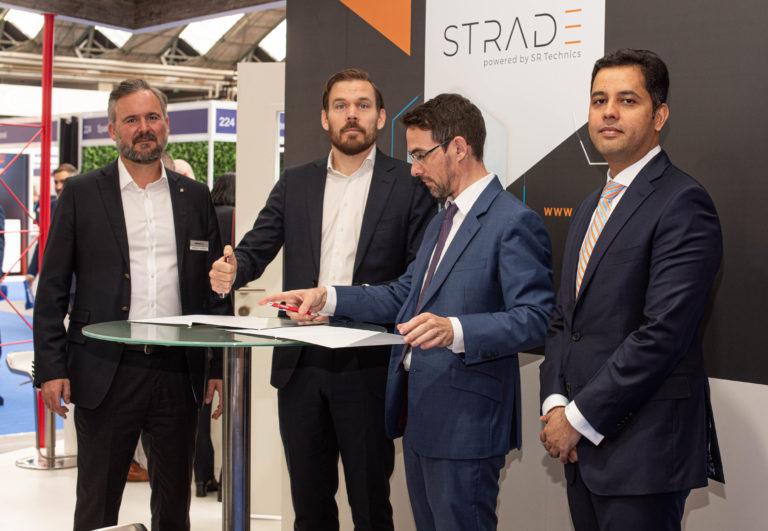
SR Technics subsidiary Strade recently opened a new component warehouse in Amsterdam and signed a parts consignment agreement with Sanad, signaling renewed ambitions to leverage its components business.
Aviation Week caught up with Job Arnold, executive director at Strade, who says the move from its London warehouse to Amsterdam was necessary and provided more room to grow.
“Our lease in London ran out so we were looking at options, including other locations like Frankfurt, Amsterdam and Paris,” he says. Eventually, the site in Amsterdam represented a modern facility that aligned with the company’s latest sustainability standards.
Arnold says the relocation was not directly related to Brexit, but some economic issues were key factors. “It's kind of a win some lose some scenario, but the labor market in the UK is difficult, finding qualified personnel for the warehouse was a challenge and the rates are going up,” he says. “Inflation is also high in the UK, so a lot of economic factors played a role, but there was never a direct link with Brexit.”
Strade provides AOG solutions, component sales, leases and exchanges on a variety of aircraft platforms. The recent consignment arrangement with Sanad will bring in another 1,600 parts to trade with. “After those components came off lease, Sanad was looking for a channel to sell, utilize those assets and to monetize them,” says Arnold.
Components come with a heavy price tag these days and Arnold acknowledges the supply chain conundrums causing price increases, however, he says Strade has reaped some rewards from the situation. “It's almost a positive impact on our business. For example, the delay in phasing in the 737 MAX means that 737NGs are operated longer, so we see more demand for the parts we have in stock,” he says.
Concurrently, Strade deals with problems tied to suppliers facing supply chain difficulties, especially when preparing parts and getting them back into stock. “It’s pretty much a double-edged sword scenario,” says Arnold.
In response to the industry-wide long turnaround times (TAT), Arnold says suppliers face the same issues. However, some shops have been able to improve their TATs significantly while others have found creative solutions.
“If you have sufficient parts on the shelf and you can rotate them, and if you still have sufficient parts coming back from repair onto your shelf, the TAT on the parts that are out doesn't really hurt, as long as you have serviceable parts on the shelf to support—and that's the case for us,” says Arnold.
Strade sees plenty of opportunities with consigned part agreements, such as its recent deal with Sanad. Arnold believes it is a cheaper solution for customers compared to purchasing the parts or having to revert to expanded power-by-the hour (PBH) contracts.
“We see that operators want flexibility, especially during uncertain times about aircraft deliveries,” says Arnold. “Also, you don't want to be locked into another PBH for the next five years on a fleet when you don’t know how it's going to shape up in 2-3 years’ time.”





